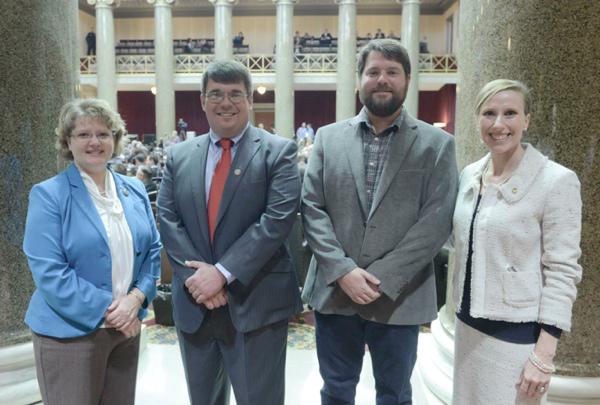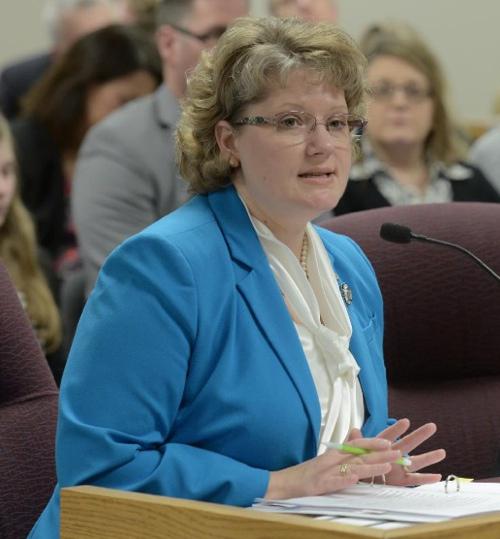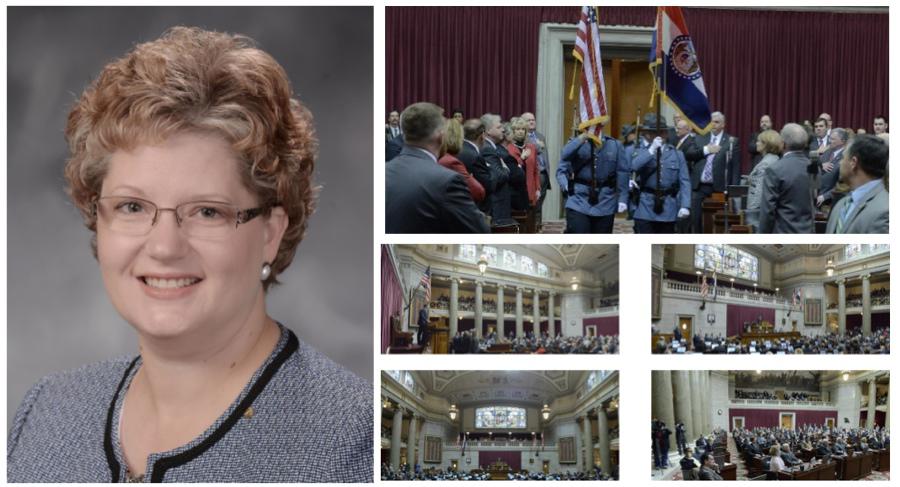
Overriding a Presidential Veto
Friday, January 29, 2016
With that vote, the U.S. House and Senate stood with the American people and delivered Obamacare its biggest blow yet. The bipartisan repeal bill would have ended the catastrophic and costly individual and employer mandates, eliminated a host of associated taxes, and reduced the government intrusion between you and your doctor. Unfortunately, as soon as that bill hit President Obama’s desk, he promptly vetoed it.
Next week I will be supporting Congress’s first veto override attempt of this President. Simply put, the American people deserve a patient-centered health care system which is free of government intrusion. I will vote to override the President’s veto because repealing Obamacare is the right thing to do in order to restore the doctor-patient relationship and get our country on track to create a market based, competitive health care system that’s actually affordable.
Obamacare is a failure, even by the government’s own standards. The Congressional Budget Office recently reported that by 2025 Obamacare will cost the economy an equivalent of 2 million full-time jobs. Consumers have been left with fewer choices and health care remains un-affordable.
You elected me to put a major repeal of Obamacare on the president’s desk and to force him to answer the question, “Whose best interest do you have at heart?” When President Obama vetoed this bill he answered loud and clear, “I've chosen my own legacy and my own interests, over those of hardworking Americans.” He cares more about protecting his signature namesake law, than improving the healthcare system in this country.
Individuals should have the ability to choose their own doctor. They should be able to purchase affordable, high-quality health care insurance that offers the best healthcare safety net option for their family. Competition without government intrusion should help drive down prices and businesses should not be hampered by confusing and conflicting healthcare regulatory paperwork. Unfortunately, even bipartisan agreement in Congress isn’t enough to get this President to accept changes to his namesake healthcare law. I know many will join me next week in attempting to override his veto and I can only hope it’s enough. When it comes to affordable and accessible healthcare, we all deserve better.



|
Statement on Noranda Aluminum Workforce Reduction Jefferson City, Missouri - It's a sad day in Southeast Missouri with the recent announcement by Noranda Aluminum in New Madrid that two of their three potlines have gone offline due to a catastrophic loss of electrical supply. Therefore, in the upcoming weeks Noranda announced reduction of employees at the New Madrid Smelter to adjust for operating only a single potline instead of three. This is a tragedy for all of the workers and their families who depend on Noranda and their good paying jobs. The local communities and subsidiary companies that supply Noranda will also be affected. Manufacturing companies across the United States have been struggling due to burdensome regulations and unfair trade laws passed by the federal government. The reluctance of USA custom agents and other government officials to enforce our country’s trade laws has resulted in foreign countries like China to continue dumping cheap, inferior products, and manipulating currency exchange rates. Coal-fired power plants over the past several years have also come under attack by the federal government, making it harder for families and businesses to pay their electric bills, especially in the Midwest. Affordable and reliable electric rates are vital to businesses remaining open and providing jobs We need Washington D.C. to quit passing burdensome regulations and defend our homegrown manufacturers from unfair government subsidized trade practices by foreign competitors. The combination of rising electrical costs, lack of enforcement of our trade laws, and job killing regulations is destroying manufacturing and businesses across our country. Many of Noranda’s domestic competitors have been going out of business in recent years because of these very same issues. It is very difficult to remain in business without affordable electrical rates. USA manufacturers cannot afford to continue producing products and selling below manufacturing cost. Until our federal and state governments change their ways, we will continue to see more American companies struggle or close. I will continue to do everything I can in Jefferson City to assist Noranda and its employees through this stormy period. My prayers and sympathy goes out to the workers and families of Noranda already affected by the layoffs, and those who may be in the future. |
|

2016 Legislative Session Begins with Call to Action from House Speaker Richardson
The opening day of the 2016 legislative session was marked by a speech from House Speaker Todd Richardson in which he called upon members to work together to, “find answers to the seminal challenges of our time and make tough decisions.” Richardson reminded members that the Missouri House of Representatives, “cannot be a place where inaction, infighting and indifference define us. This must be a place where we tackle and solve real problems.”
In his speech, Richardson highlighted many of the recent accomplishments of the legislature. He emphasized the General Assembly’s work to end the practice of taxation by citation in the municipal court system; passage of the first income tax cut in a century; reforms to the state’s welfare system to help get people out of poverty rather than trap them in it; and efforts to reduce the numbers of abortions in the state by 30 percent over the last 10 years.
Richardson also cited several accomplishments that have not received as much attention including efforts to make oral chemotherapy medications more affordable for Missourians battling cancer; work to ensure Missourians with eating disorders have access to the help and care they need; and proactive steps taken by the legislature to protect children from the ever-growing dangers of human trafficking. As Richardson said in his speech, “By doing so, we’ve made our state a better, more compassionate place.”
In setting the tone for the upcoming session, Richardson reminded his colleagues that while much had been accomplished, the legislature still has much to do. Richardson noted that, “We live in a state where wages are stagnant. Consider this; the spending power of a Missouri family is $5000 – less than it was at the start of this century. We live in a state where a devastating cycle of dependency traps too many of our fellow Missourians in poverty. More people are on government assistance than ever before. Spending on welfare and entitlement programs is growing at a rate faster than our economy.”
Richardson called on his colleagues to work together to help find solutions to the problems facing Missouri families, and to develop ideas that will allow Missourians to pursue the American Dream rather than be trapped in poverty. Richardson ended his speech by asking members if they will use their, “time and the unique power we all hold to make this state a better place and to be an advocate for those who sent us here? The answer to that question is the one that will define us.”
Opening Day of Session Highlighted by Emphasis on Ethics Reform
During his Opening Day Address, House Speaker Richardson also made it clear that the top legislative priority for the House in the first days of session will be substantive ethics reform. Richardson said he plans to immediately assign every ethics bill filed in the House to committee so that members can begin a thorough discussion on the proposals designed to improve the culture at the Missouri State Capitol.
Richardson said he is asking the committee to, “act with haste to send us a set of substantive, meaningful, single subject ethics bills so that they may be the very first matter that this General Assembly tackles. In doing so we will improve the environment in Jefferson City, and begin the process of restoring the public’s confidence in this institution. There is no rule or law that can make our imperfect process perfect, but we can, and we must, work to improve the culture here in the people’s Capitol.”
Richardson has already stated he supports implementing a ban on all gifts from lobbyists to legislators and an end to the revolving door that allows elected officials to immediately become lobbyists after leaving office. Legislators also will discuss improvements to the personal financial disclosure requirements, and prohibiting members from also serving as paid political consultants. Richardson said he expects several bills to make it to the floor next week and for the House to approve and send the bills on to the Senate.
Lawmakers to Consider Transportation Funding Issue
Another pressing issue lawmakers will try to tackle in 2016 deals with the finding a much-needed funding solution for Missouri’s transportation system. While increasing revenues have made the situation less dire than it was a year ago, the state’s transportation department still needs an additional $160 million in new revenues to adequately maintain and improve the existing highway system. During the opening day of the legislative session, lawmakers had differing views on how to address the funding shortfall.
Some lawmakers support a small fuel tax increase – 1.5 cents for gasoline and 3.5 cents for diesel fuel – to generate additional dollars for the state’s roads. They noted that at with the current low gas prices, a minimal fuel tax increase would have minimal impact on the pocket books of Missourians. The Senate gave first-round approval to legislation to raise the tax last year, but the bill never made it to the other side of the building. This year, versions of the bill have been filed in both the House and Senate.
However, many in the legislature are opposed to any sort of tax increase. They note that voters rejected a proposed increase in 2014 that would have increased the state sales tax by ¾ cent to raise an additional $540 million. House Speaker Todd Richardson pointed out that the proposed small fuel tax increase would generate only a portion of the new funding needed by the transportation department. The proposed increase would generate only $56 million of the $160 million needed for Missouri’s roads. Richardson also said, “We're going to be focused in the House on finding some ways to improve the transportation system and the amount of money we're spending on transportation through the budget – and trying to find some ways that we can prioritize that spending as we have revenue growth.”
In the coming weeks, lawmakers will spend time discussing the possible solutions for Missouri’s road funding crisis.
Tila Hubrecht
151st State Representative

